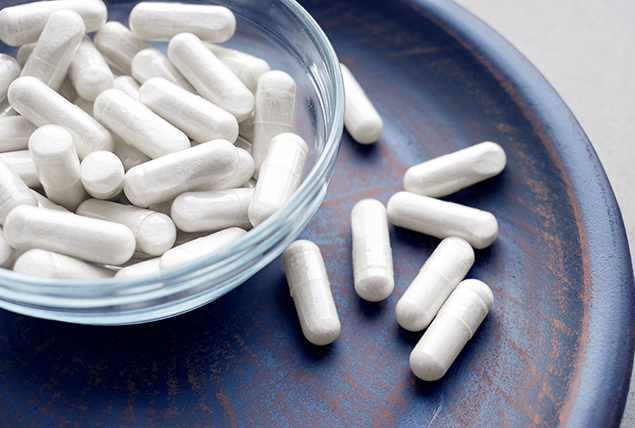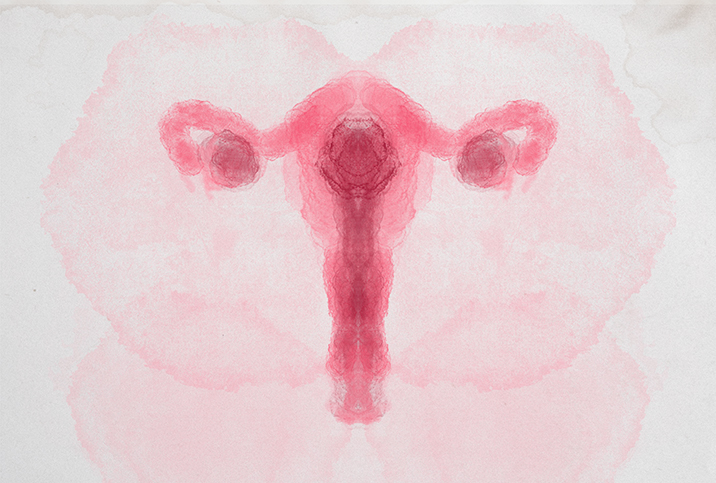Is Myo-Inositol (MI) a Good Supplement for PCOS?

Key Points
- Polycystic ovary syndrome can cause symptoms such as weight gain, body hair growth and abnormal periods.
- Myo-inositol—one of nine forms of inositol—can help relieve the symptoms of PCOS.
- Myo-inositol can be found naturally in foods or taken as a supplement.
Polycystic ovary syndrome (PCOS) is a condition that causes hormonal imbalances that can lead to symptoms such as abnormal periods, acne, weight gain and body hair growth. In some cases, the condition can lead to infertility, diabetes and high blood pressure.
While there is no cure for PCOS, there are a number of ways that the condition and its symptoms can be managed. One of the possible treatments to help relieve the symptoms of PCOS is the myo-inositol (MI) supplement.
However—does myo-inositol work? What are the effects of myo-inositol and the myo-inositol benefits for women with PCOS?
What is myo-inositol?
"Inositol is a type of simple sugar that was previously considered a B vitamin; however, it is no longer classed as an essential nutrient as it can be synthesized by the human body," said Jodie Relf, R.D., a London-based PCOS dietician and spokesperson for MyOva.
Inositol is found in certain foods, including beans, grain, corn and fruits. You may know it by a different name, though, as it was commonly referred to as vitamin B8, according to Alyssa Pacheco, R.D., a registered dietician and PCOS specialist in Boston—but it isn't a vitamin after all.
Myo-inositol (MI) is one of the nine types of inositol and a supplement sometimes used to help people living with PCOS.
What does myo-inositol do?
Myo-inositol supports several functions in the body.
"It is an insulin sensitizer," Relf said. "This means that it improves how the body responds to insulin due to its role in the metabolic pathways involved in carbohydrate metabolism."
It could help regulate menstruation and help reduce other symptoms in people with PCOS.
"Research shows that it can lower glucose, insulin, cholesterol and testosterone levels," Pacheco said. "It can also promote more regular menstrual cycles and ovulation. Many people also report a significant decrease in carb cravings when taking inositol supplements."
Recommended
- Women With PCOS Are Three Times More Likely to Have Eating Disorders: Polycystic ovary syndrome can affect your mind as much as your ovaries.
- How PCOS Affects Your Hair and What You Can Do About It: Hormonal imbalances can wreak havoc on your tresses, but treatment is available.
- What It's Like to Have PCOS: Facial hair and infertility may be signs of a larger issue.
Who should take myo-inositol?
MI is often recommended as dietary supplementation for people with PCOS because it can help with insulin resistance (IR), which occurs in 35 percent to 80 percent of PCOS cases, according to a 2022 report.
"More and more research is being done on the impact of inositol, and the results are very promising," Relf said. "We can see that regular supplementation with myo-inositol improves insulin sensitivity, restores regular ovulation and regulates the menstrual cycle as well as reducing elevated testosterone levels. You can quickly see why this would be of interest to those with PCOS."
It could help women deal with some of the most common PCOS symptoms.
"It may be very beneficial for those with PCOS, especially someone who is struggling with insulin levels, high testosterone, irregular periods or carb cravings," Pacheco said.
How long does it take myo-inositol to work?
Once you begin taking myo-inositol, you may begin to notice changes within a few weeks. However, the supplement works differently for everyone.
"Some people may notice improvements in certain lesser-known PCOS symptoms, such as carb cravings, within a couple of weeks. However, it may take up to three months for some people to notice any benefits," Pacheco said. "If you're going to give this supplement a try, it's best to use it for at least a full three months."
Are there any side effects to taking myo-inositol?
"MI is a naturally occurring substance and supplementation has little or no side effects," Relf said.
This makes it an alternative to other insulin sensitizers, such as metformin, which is often prescribed to aid weight loss and improve fertility.
"The side effects of metformin can be really unpleasant," Relf said. "Research shows that myo-inositol is as effective as metformin but without the unpleasant side effects, therefore making it a great alternative."
Does myo-inositol increase estrogen?
Estrogen levels, particularly levels of estradiol, are often low in women with PCOS, a 2022 study suggested.
Some research indicates the supplement may be able to help raise levels of estradiol, Pacheco said. However, more research is needed to understand the full effects of myo-inositol on estrogen levels.
Is inositol the same as myo-inositol?
"Myo-inositol is the most researched inositol and has been found to be beneficial for the management of PCOS," Relf said.
Myo-inositol is one of the nine types of inositol. The other eight types include the following:
- D-chiro-inositol
- Scyllo-inositol
- Epi-inositol
- Cis-inositol
- L-chiro-inositol
- Muco-inositol
- Allo-inositol
- Neo-inositol
D-chiro inositol (MDI) is another type of inositol that is sometimes used to help manage PCOS. MDI is a less preferable option because it may lower estrogen levels, according to Reif.
"This is not recommended, as estrogen plays an important role in bone health and the prevention of breast cancer," she said.
Can you get inositol from food?
Inositol is found in a number of foods. For instance, you can find this form of sugar in:
- Brazil nuts
- Walnuts
- Cantaloupe
- Meat
- Beans
- Wheat bran
The typical diet in the United States includes about 1 gram of inositol a day, according to Cleveland Clinic.
Myo-inositol is a promising natural supplement that may help manage PCOS symptoms. Speak to your doctor to learn about the best options to help your situation.


















